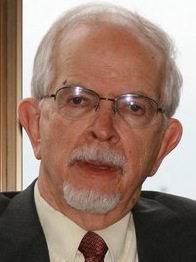No one ever said diplomacy was easy. Many have said it is messy. But one thing is certain: Diplomacy is better than destruction.
Thanks to diplomacy, which weathered recent negative media cries of incompetence, the U.S. Secretary of State John Kerry has announced that the U.S. and Russia have reached what one news outlet called a "stunning" agreement.
The Secretary made the announcement from Geneva mid-day Saturday, after meeting with Russian Foreign Minister Sergey Lavrov. The Daily Beast report by Christopher Dickey, begins:
"In a stunning agreement that could lead to the end of the Syrian crisis, Russia and the U.S. announce a plan to eliminate Assad's chemical arsenal.
"The diplomatic breakthrough in Geneva today is simply stunning. The 'framework agreement for elimination of Syrian chemical weapons' reached by Secretary of State John Kerry and Russian Foreign Minister Sergey Lavrov delivers, in writing at least, just about everything President Barack Obama demanded when he threatened to attack the Assad regime earlier this month.
"The agreement calls on Syria to declare in detail its entire chemical arsenal within weeks and destroy it -- along with everything involved in making it -- within five or six months."
The agreement, Framework for Elimination of Syrian Chemicals, was released by the U.S. Department of State in Washington.
The Framework begins:
"Taking into account the decision of the Syrian Arab Republic to accede to the Chemical Weapons Convention and the commitment of the Syrian authorities to provisionally apply the Convention prior to its entry into force, the United States and the Russian Federation express their joint determination to ensure the destruction of the Syrian chemical weapons program (CW) in the soonest and safest manner.
"For this purpose, the United States and the Russian Federation have committed to prepare and submit in the next few days to the Executive Council of the OPCW a draft decision setting down special procedures for expeditious destruction of the Syrian chemical weapons program and stringent verification thereof. The principles on which this decision should be based, in the view of both sides, are set forth in Annex A. The United States and the Russian Federation believe that these extraordinary procedures are necessitated by the prior use of these weapons in Syria and the volatility of the Syrian civil war."
A major storm of political negativity is expected to greet the news in Israel, which had earlier massed its U.S. lobbying troops (AIPAC leading the charge) in a desperate effort to gain congressional support for a U.S. military assault on Syria's chemical weapons sites.
AIPAC failed to move even its most ardent admirers in a U.S. congress that knows its voters are weary of wars, and especially unwilling to become involved in Syria's two and one half year old civil war.
Secretary of Kerry was expected to fly from Geneva to Tel Aviv to brief Israeli leaders on the Framework. As he well knows, the issue with Israel is not so much Syria as it is Iran. Israel, with its own heavy arsenal of nuclear weapons stashed away in the desert, wants the U.S. to force Iran to give up any plans for building its own nuclear stockpile.
Not attacking Syria, but turning the assignment over to diplomacy, was not what Israel, with Iran as its major target, wanted to see.
Republican war hawks and Israeli-backers in the Senate were quick to join Israel's complaints about the peace agreement. The Washington Post reported:
"News of the agreement drew immediate criticism from prominent Republicans in Congress, some of whom had supported the idea of airstrikes against Assad after last month's use of chemical weapons, putting them briefly on the same side as Obama.
(Note: You can view every article as one long page if you sign up as an Advocate Member, or higher).






